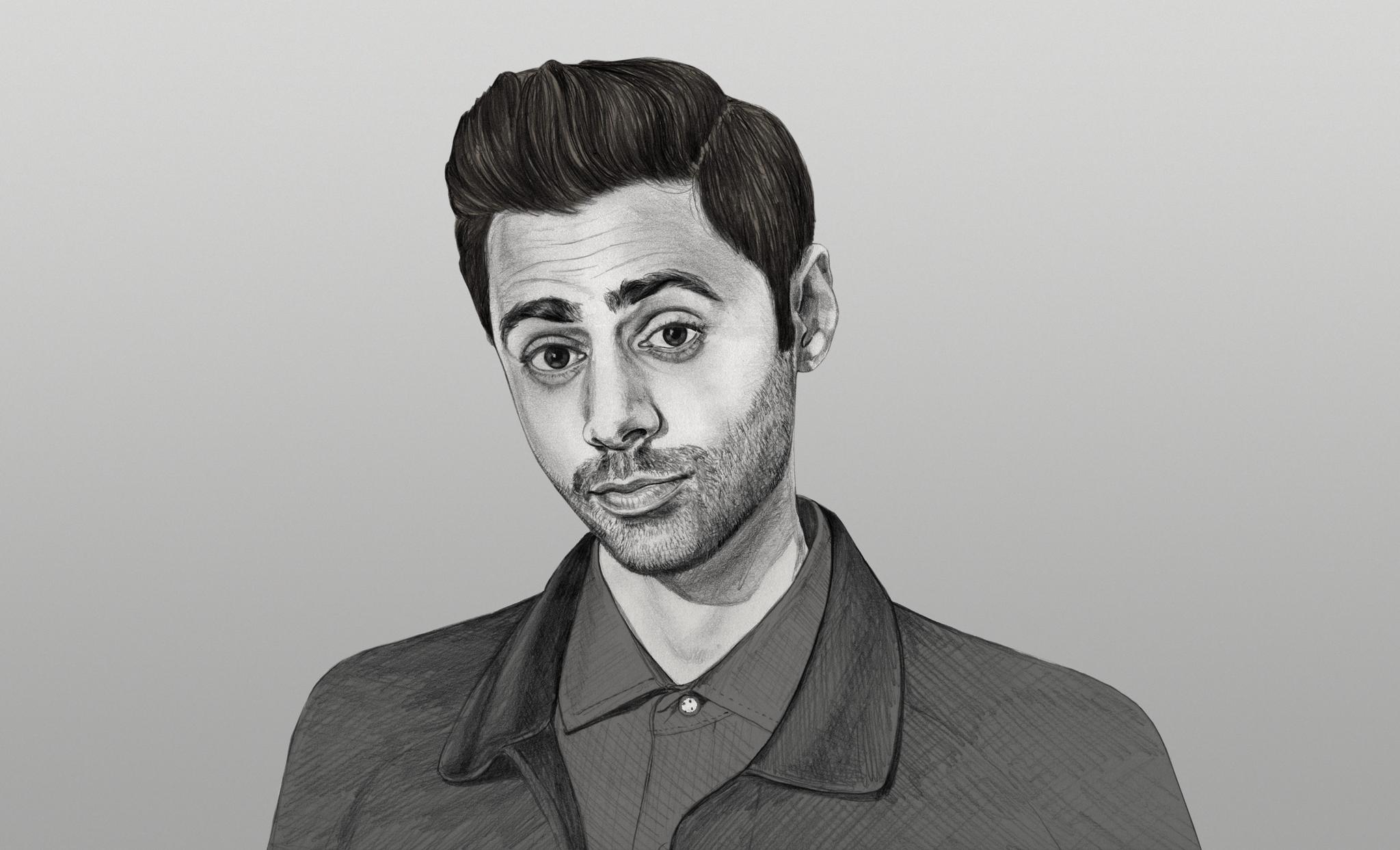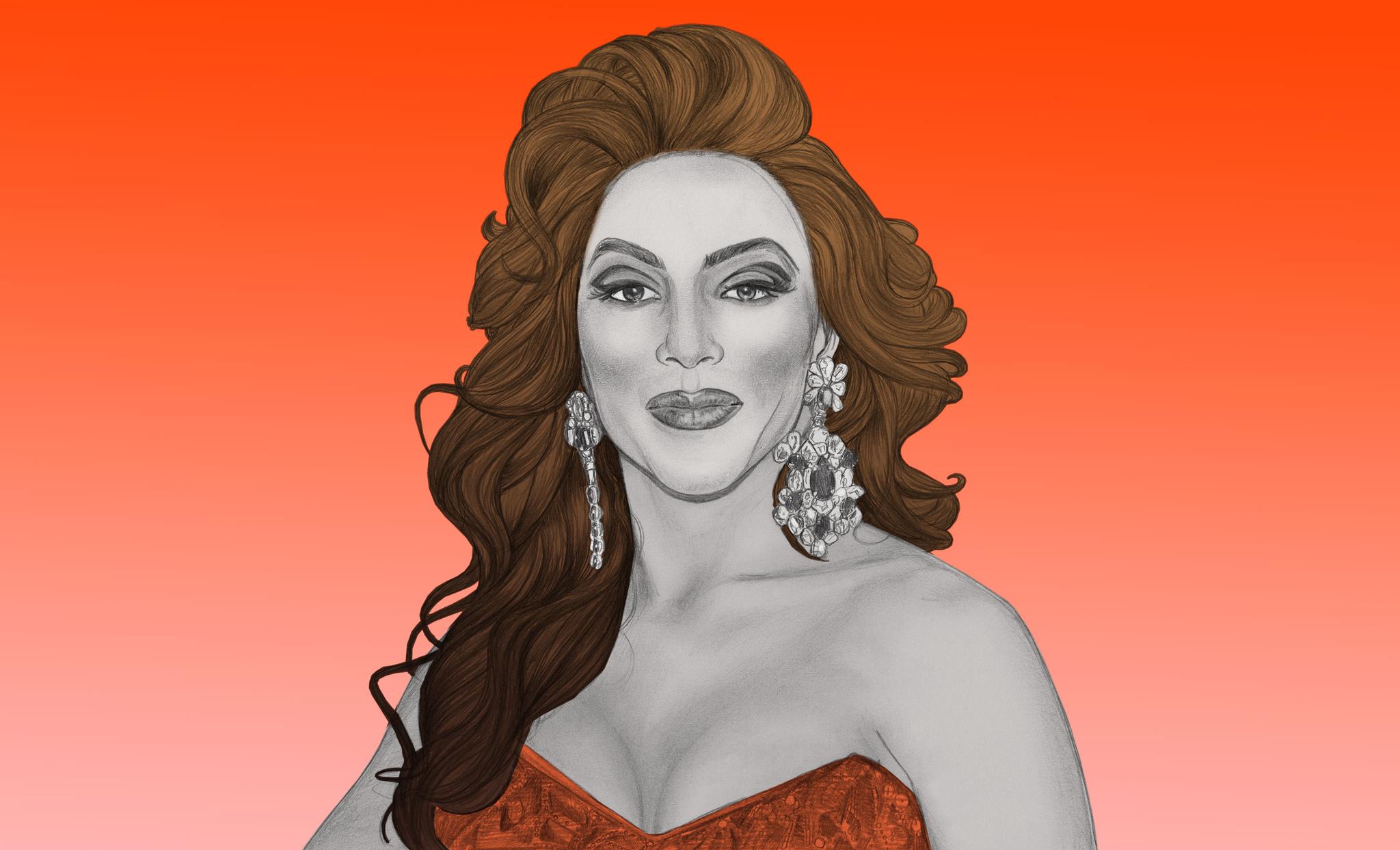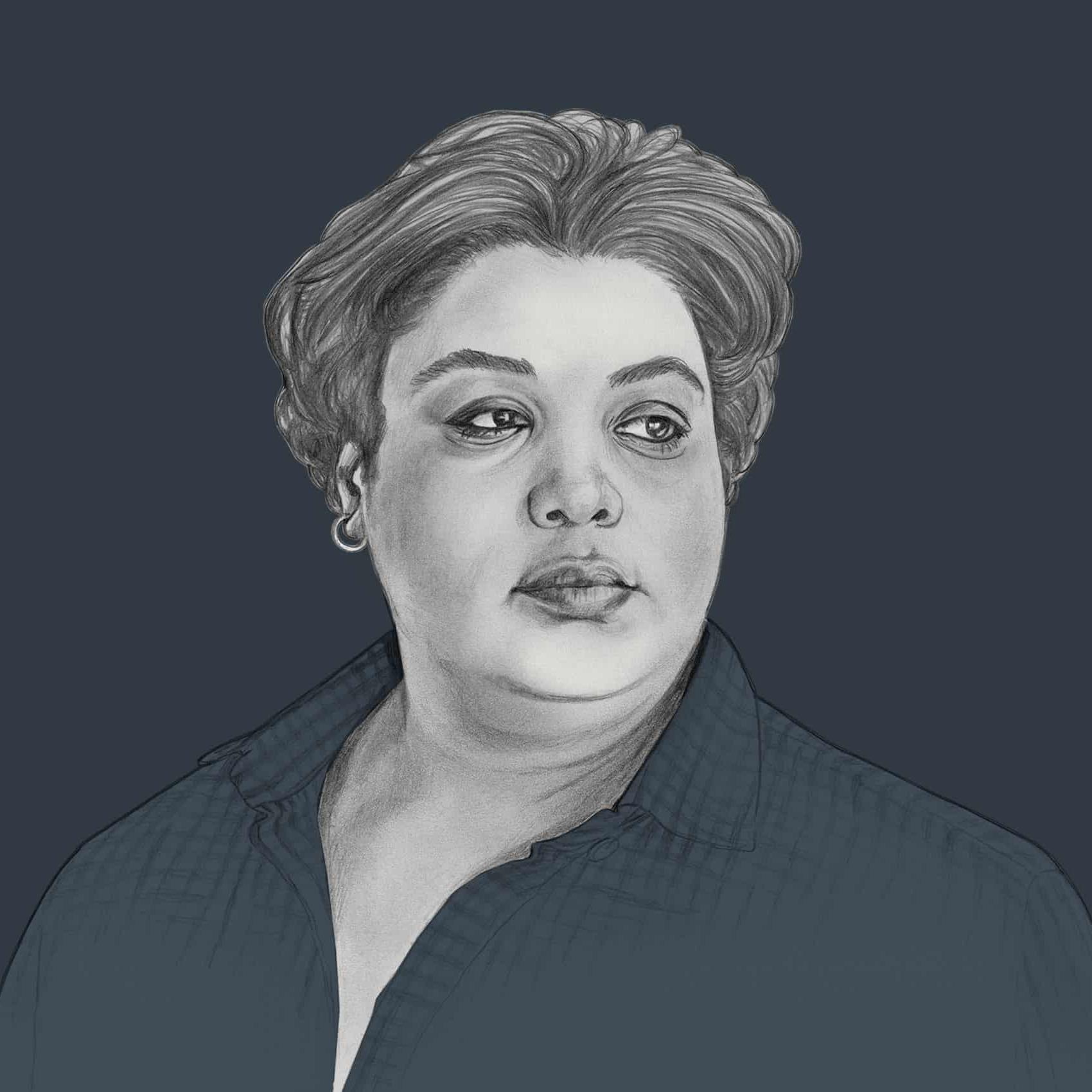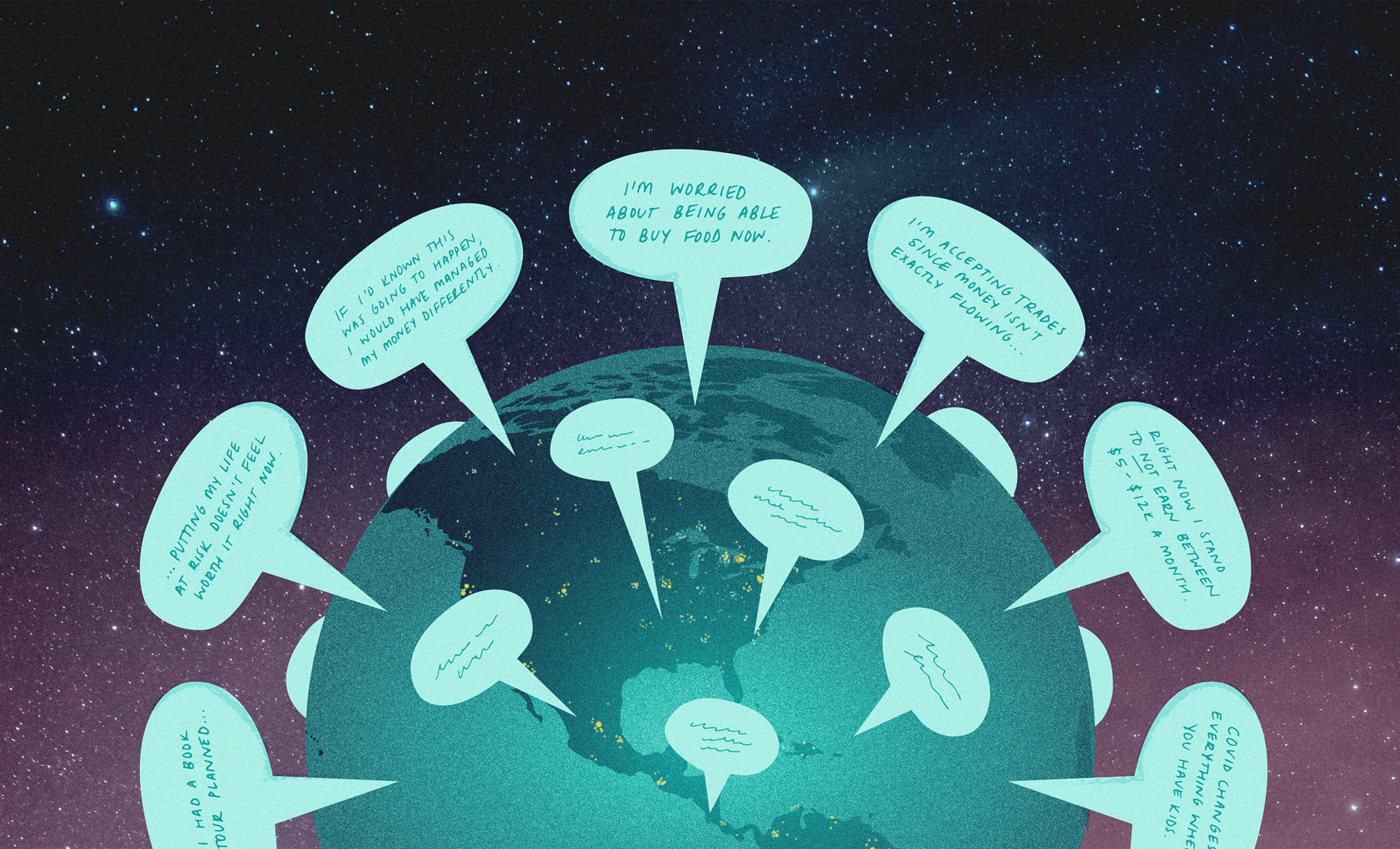
Money Diaries
Before He Had His Own Show, He Worked In Tech Support
Hasan Minhaj reveals the financial power of college clubs, saying no to law school, and gambling the cost of a BMW on your own one-man show.
Wealthsimple makes powerful financial tools to help you grow and manage your money. Learn more
Wealthsimple is a whole new kind of investing service. This is the latest installment of our recurring series “Money Diaries” where we ask interesting people to open up about the role money has played in their lives.
Right when I got out of college, I got a job doing technical support at a social networking startup in Palo Alto. It was a really good job, a good salary. But it just wasn’t enough. I was hanging out with my cube mates, and they were starting to get carpal tunnel. It dawned on me that the money in my bank account every 2 weeks was not enough to warrant the stress or anxiety or pain of not doing what I'd always wanted to do. It was a good job, but it was a ton of hours, and those hours were taking me away from comedy and my true ambition.
My parents taught me the lesson really early on to invest in myself, even if at first it was investing in Jordans. My first job was bagging groceries at Safeway when I was 15. I got $322 for 2 weeks working after school and on weekends. I remember being like, oh, this represents independence. I don’t have to ask my parents for money. The Wells Fargo where I deposited the money was actually in that Safeway, I walked about 17 feet to deposit it. And it went straight to a new pair of Jordans.
Now, my parents were cool with spending money on Jordans once in a while. We didn’t have cable TV and we didn’t have video games, so to them it was a fair trade-off. It was less of a net distraction from my life as a student — and that was their goal. At least the $170 Jordans didn’t cut into my homework time. I didn’t want my parents to think I was being wasteful though. I would say, “Don’t worry. I won’t get rid of them.” Some of those shoes are still in the garage at my parents' house in Sacramento.
That whole idea of investing everything in yourself for that goal is still how I live. When people are like, “Hey, did you binge the new season of 'Game of Thrones'?” Or ask, “Have you seen the new 'House of Cards'?” I’m like, I’d rather do everything I can to invest in creative projects that I can do on my own. I want to minimize those other distractions — whether they cost money or time — because when you’re investing in yourself, the return on investment multiplies quickly.
The economics of comedy are tough on young comedians. When you first start, you make $25 bucks a set. I started doing comedy when I was in college at UC Davis. I got gigs in places where you’d make $50 a set to host and $100 to “middle.” I had no idea what headliners made because as a local comedian, I couldn’t headline. So if I worked really, really hard, I could get six shows a weekend and earn $300. But since I was based near the San Francisco area, I’d get only two or three of those hosting weeks a year, so I couldn’t really build a life around that.

Sign up for our weekly non-boring newsletter about money, markets, and more.
By providing your email, you are consenting to receive communications from Wealthsimple Media Inc. Visit our Privacy Policy for more info, or contact us at privacy@wealthsimple.com or 80 Spadina Ave., Toronto, ON.
A lot of people would be like, “Hey, this system is rigged. It’s not set up for you to survive as a full-time working comedian.” Early on I started to look at the operational costs from a macro level. Like, how does this whole system run? That got me thinking entrepreneurially. The biggest thing that I realized was that I didn’t want to live and die by the two-drink minimum and the limitations of the comedy circuit. How could I rise above this thing?
So I started building an email list and putting on my own shows. I’d negotiate with a coffee shop or a local venue. But pretty quickly I realized that there was an untapped resource: college organizations.
I think that still goes back to my parents just being like, “Whatever it is, invest in yourself. You’ll reap exponential rewards from that later.”
OK, so I started a Comedy Club at UC Davis. Not a club where people came to see comedy, but a Comedy Club, like, “Hey, if you want to do stand-up comedy, this is the club for you.” There weren’t that many people at UC Davis who wanted to do stand-up comedy. Actually, there were only three of us. But we applied for a grant for thousands of dollars and got it. That gave me leverage to get big headlining acts to come perform at Davis. My pitch to established comedians was: “I know you’re doing Thursday through Sunday at the Punchline in San Francisco. Why don’t you come out to UC Davis on Wednesday night? You can make $1,500. I’ll open for you, and it will be an awesome crowd of supereager college students who will be really excited that you came to Davis.”
I think that still goes back to my parents just being like, “Whatever it is, invest in yourself. You’ll reap exponential rewards from that later.” It’s the immigrant’s mentality of saying, “Don’t sweat the pennies on the way to millions.” And it worked in a way. I remember going to Kinko’s with a buddy from the Comedy Club to put together this packet to give to the dean’s office when we applied for this grant. We had to get it laminated, get a glossy cover and all that stuff, and it was $49. My buddy was like, “This is bullshit. We’re students. We’re broke. We shouldn’t have to pay for this.” And I was like, “Here’s $50 from my Safeway money. If we nail this, we get $10,000 to start the club. Neither of us is going to have that type of capital bagging groceries or being baristas. If we hit this out of the park, the return on investment is huge!”
And it was. The Comedy Club was one of the most beneficial experiences of my college career. I got to open for big comedians and do a long warm-up set for them — none of which I’d have been able to do otherwise. That same invest-in-yourself blueprint came into play over and over: when I was getting ready to audition for “The Daily Show,” when I was preparing for the White House Correspondents’ Dinner, and when I was putting together my off-Broadway show “Homecoming King.” It was like, nobody is fronting this money for me. I’m going to have to find a way. If this works out, I win big. If it doesn’t work out, well, I guess I lose.
When I got that job in Silicon Valley, I realized I couldn’t go down that path. I started doing these gigs where I’d get anywhere from $800 to $1,000 to do sets on different college campuses. You had to travel anywhere in the country and perform in a college cafeteria or a library or a study lounge. But it was comedy. I figured, I can do three to five colleges a month and cover my expenses while I live in Los Angeles and pursue this dream of show business. That’s how I saw the country, doing comedy full-time.
Recommended for you

How I was Conned by the “Fake German Heiress”
Money Diaries

Cult Animator Carson Mell Decided Making Stuff Was More Important than College
Money Diaries

Shangela Would Like to Remind You to Tip Your Drag Queen
Money Diaries

Roxane Gay on Financial Independence: 'The Most Important Thing a Woman Can Do for Herself'
Money Diaries
After a while I started doing some late-night shows, like “Chelsea Lately,” and then I got a series regular role on a television show, a recurring character. Things kept building, you know? But even then I didn’t like depending on getting gigs on someone else’s project. I needed something that was my thing. That’s when I started to put together the YouTube web series that became “The Truth of Hasan Minhaj.”
I bought a lighting kit and some staging stuff at Home Depot. I shot it with my friend Aristotle, who directed it. We would shoot in the lounge of my apartment building after midnight when no one was there. That was our set. We did it all on what I called the Subway foot-long budget. I would go on Craigslist and ask someone if they would operate the boom mic or set up the lights? It’s like, “Hey, here’s $100 bucks. That can at least get you a Subway foot-long. Is that cool?”
Google wasn’t paying me for my YouTube videos, and I ate the cost on every single one. People thought that I was pretty dumb. They were like, “Keep auditioning. Keep doing these recurring little guest stars on TV. That’s the way. Maybe one day you’ll hit it big.” But I said, “Well, OK, but what if I take a third of my money to make these YouTube videos, and I write them, star in them, and it’s all me. There’s no middleman. You know, people can see everything that’s on offer.” People really dug it. People really liked it and shared them online. I didn’t know when this would pay itself back, but I knew it was resonating in a very real, tangible way. Those videos, through several degrees of separation, ended up helping me land my “Daily Show” audition.
And you know what’s funny? I would tell my friends who grew up in an immigrant background about how I was paying for this YouTube series and they would get it instantly. They would say, “Oh, so you’re paying for comedy grad school. Cool.” They saw it crystal clear. They were like, “I’m in law school or dental school, and Hasan is paying for his videos. I’m becoming a dentist, and Hasan is becoming a full-time comedian.” Actually if I were to calculate it out, this was a bargain! I paid a quarter of what my sister had to pay for law school.
My parents were harder to convince. I was a few years out of college, and I was still struggling a little bit with my career. I had taken the LSATs a few years earlier, and my score was about to expire. My parents wanted me to apply to law school. I was 25 years old, and I was like, “I don’t want to do something I don’t believe in. That will eat me up inside.” My dad was like, “Why don’t you just apply? If comedy doesn’t work out, if you don’t see any sort of career, if you don’t even see yourself getting to that next monkey bar, why don’t you go because you’re a really talented, smart guy?” He really went rational and reasonable with me. He was like, “You’re my son. I want you to be OK. That’s my main concern.”
So I applied to law school. But I was so sad. Right when admission letters were coming back, I was asked to host a reality show on MTV called “Disaster Date.” That was a big deal for me. Twelve episodes and I was the host. I took it as a sign.
Not going to law school was definitely the right move, and by 2015 I was making a good living. I was a correspondent on “The Daily Show,” so I decided to risk a bunch of my money on something I could make myself all over again.
But I thought to myself, You know, I can do this. I’m going to have to spend some money and it’s a lot of upfront risk, but if I do this, it will open up a whole new chapter of my career.
There are two models for producing a play. You can go to a place like the Public Theater in New York, where a lot of the operational cost is covered up front by the venue itself, some sort of grant, or an outside production company. The other model is the one I used to stage “Homecoming King” at the Cherry Lane Theater.
The Cherry Lane is a beautiful off-Broadway house in Greenwich Village, and it operates a little differently. It is willing to work directly with artists to produce one-man shows or plays, but you have to cover the costs and pay the rent and take care of the day-to-day operations of your show. So it comes with a somewhat premium price tag. But I thought to myself, You know, I can do this. I’m going to have to spend some money and it’s a lot of upfront risk, but if I do this, it will open up a whole new chapter of my career. It will give me material for the comedy club circuit; it’ll open up a theatrical side to my comedy, which could be awesome and fulfilling; and if this goes well, maybe I could get a special out of it. And I did. Netflix released “Homecoming King” last May. All of those things ended up happening.
But first, I had to pay the rental fee to use the facility and to put on the whole show — the people who take tickets at the box office, seat the audience, do lighting design, art direction, stage design, all that. Even after I started on “The Daily Show,” I lived with roommates in a two-bedroom apartment in New York. My wife was in LA, and the money I saved on rent went to the deposit on the venue. I’d saved up enough to put the money down. It’s not six figures, but it's tens of thousands for a month. Let’s say it was a significant amount of money — a new BMW. I remember thinking, Hang on one second. It took me a long time to get this job, and now that I finally have an income, I’m spending it on this? But I felt like, Hey, this could be another level up.
Whether or not I was conscious of it, that sort of risk or investment in yourself, in your work, must make you more committed to your long-term goal. You’re like, I have to do this because it came out of my own pocket.
By then I’d workshopped the show in L.A. and in the Sundance Labs for almost two years. We’d really sort of ground it out and developed something that I thought was special. I felt like I had an opportunity to sit at the big-boy table. I had this great job in New York City and a phenomenal venue to stage the show in. Two of the three necessary conditions had lined up. All I had to do was put down the money. So what was I waiting for? There was no other time to do this. It was just about pulling the trigger. So I did — and I didn’t lose everything! It’s how I was able to do the Netflix special. So it’s paid off in ways I couldn’t even imagine — and a bunch of ways that I could.
As told to Mark Healy exclusively for Wealthsimple. Illustration by Jenny Mörtsell. We make smart investing simple and affordable.
Wealthsimple's education team is made up of writers and financial experts dedicated to making the world of finance easy to understand and not-at-all boring to read.





